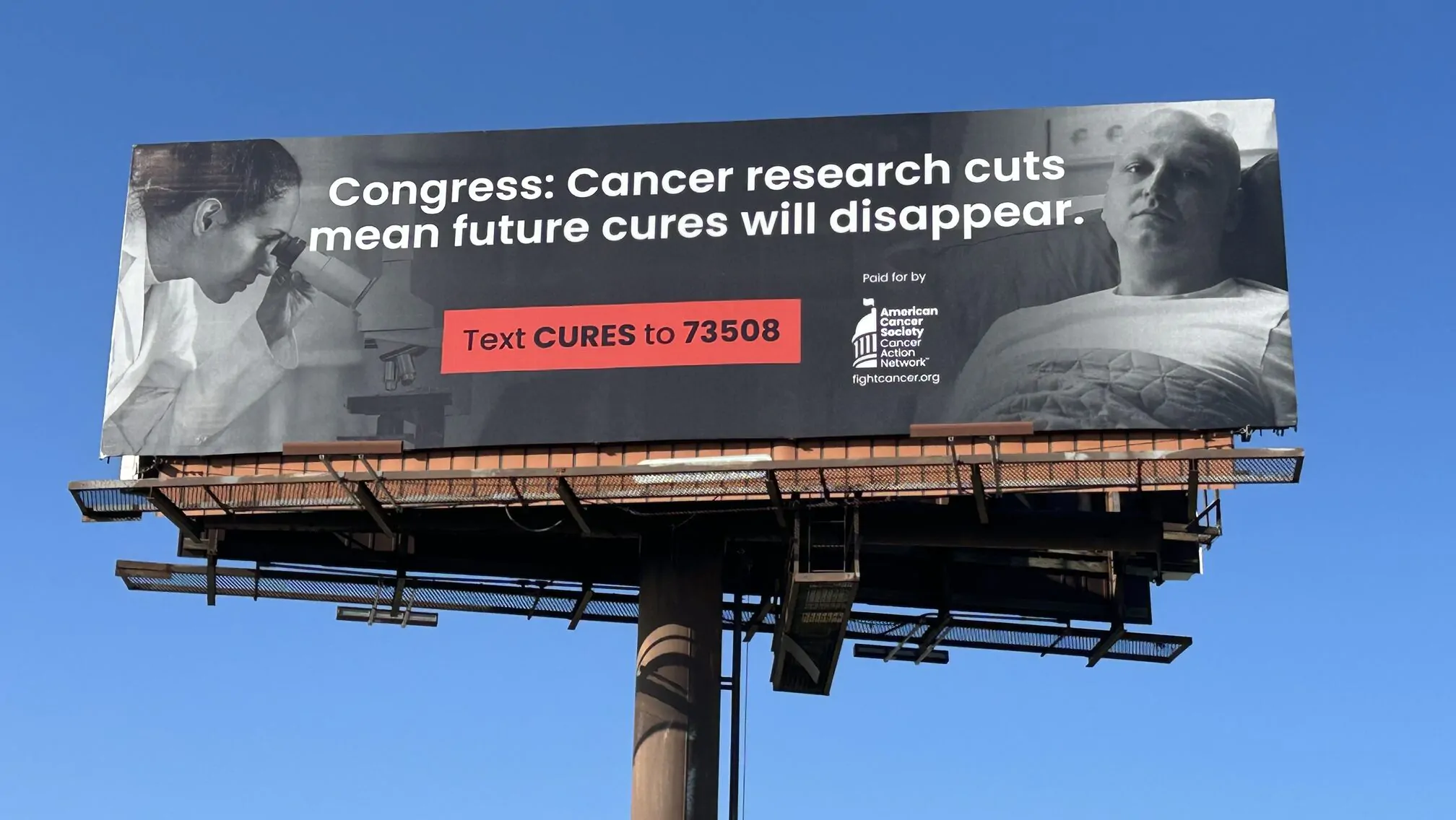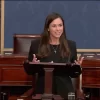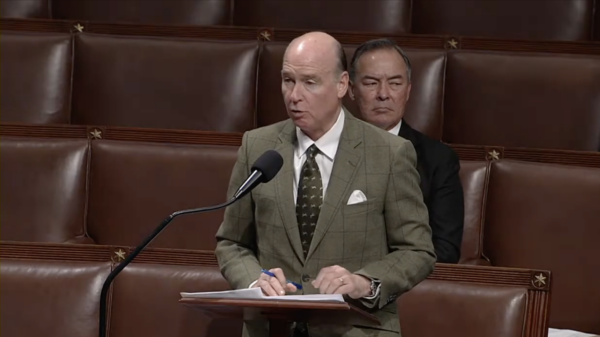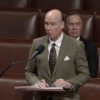The American Cancer Society Cancer Action Network is taking aim at proposed budget cuts to cancer research funding, unveiling a new advertising campaign—featuring two prominent billboards in Alabama, that speak out against potential funding cuts to health organizations.
In May, the White House’s Office of Management and Budget proposed a $27.9 billion budget for the National Institutes of Health, which would be an $18 billion cut to the organization’s funding. The Trump administration has also recommended cutting NIH’s National Cancer Institute’s funding down to $4.5 billion, a decrease of 37 percent when compared to 2025.
In response to proposed cuts, and ahead of the U.S. Senate’s vote on NIH’s budget for 2026, ACS CAN placed two billboards off Interstate 65 in the Birmingham and Montgomery areas seeking to raise awareness of threats to cancer research funding.
“Congress: Cancer research cuts mean future cures will disappear,” the billboards read.
They also urge citizens to text “CURES” to 73508 to learn how to get involved in advocating for cancer research funding.
ACS CAN’s campaign comes as the U.S. Senate is set to vote on a proposal for NIH’s 2026 budget, and Democrat and Republican lawmakers alike have rebuked the White House’s demand to slash the organization’s funding.
In a split with OMB’s proposal for reductions in NIH’s budget, which ACS CAN said would bring the organization’s funding back to levels from 2003, the Senate Committee on Appropriations on July 31 voted 26-3 to boost the agency’s funding for 2026.
The committee upped NIH’s budget by $400 million, including a $150 million increase in cancer research funding.
ACS CAN Alabama Government Relations Director Jane Adams as well as Dr. Ankur Saxena, a pediatric cancer researcher at the University of Alabama at Birmingham, both expressed thanks for the Senate appropriations committee’s decision to advocate for budget expansions at NIH.
The two, however, emphasized that until NIH’s 2026 budget is passed the future of cancer research in Alabama remains uncertain, and increasingly at risk.
“Research has never been under threat as much as it is now,” said Adams.
“It used to be a very bipartisan agreed-upon issue that cancer research is valuable and we needed to keep funding it and investing in ending this horrible disease,” she continued, arguing that since the Trump administration’s arrival, cancer research has been seen by the Executive Branch as a financial waste.
Adams said, although she sees the appropriations committee vote as a victory for cancer research funding, ACS CAN will continue advocating for “robust investments” in research up until the appropriation bill’s passage.
“You know, it’s not over till it’s over,” she said. “We appreciate what the Senate is doing, but until something is signed into law, we’re not gonna stop advocating for deep investments in cancer research.”
Adams attributed the Senate appropriations committee’s vote against the OMB proposal as evidence of the unpopularity of cost-cutting efforts aimed at cutting budgets for programs that save lives.
“There’s not an outcry of Americans saying, ‘no more cancer research,’ right? It’s not a popular position that the administration has taken,” she said.
Saxena similarly expressed optimism regarding the vote and worry regarding the uncertain state of cancer research funding.
“We’re hoping for the best, bracing for the worst and just trying to hang in there,” he said.
Saxena expressed concern for the proposed cuts’ impacts on Birmingham’s community and economic growth, as well as the future of healthcare in Alabama.
“This is a state that has a huge need for improved healthcare, right? And new ideas of the solutions,” Saxena said. “I was recruited here about a year and a half ago, partly because of the opportunities to really get out into the community and serve and also do research that has an impact.”
The doctor and researcher pointed to clinical trials done by UAB’s O’Neal Comprehensive Cancer Center, bringing jobs to Birmingham, while being on the cutting edge of cancer research.
“Wherever you are in this country, the future of this country’s best jobs and the health and well-being of people is all about science, technology and healthcare,” Saxena said. “That’s very self-evident at this point, and Birmingham is a great example of that. This metroplex right now is growing like crazy in large part because of the biomedical research here and its many spin-offs and the people we bring in.”
“All of that comes back to NIH funding,” he continued. “I pay people with NIH dollars that I apply for very competitively, and the success we have in the lab with new ideas and new research on cancer, that’s the beginning of the long path to sort of finding the therapies down the road that are going to benefit people.”
ACS CAN’s campaign comes amid delays and uncertainty regarding NIH grants for the current fiscal year.
Sen. Katie Britt, R-Ala., led a letter signed by 13 additional Senate Republicans to OMB Director Russell Vought on July 25 expressing concern on the “the slow disbursement rate of FY25 NIH funds.” Fiscal Year 2025 ends Sept. 30.
A memo from the OMB, last Tuesday, also temporarily halted all funding for NIH research, before the Trump administration revoked the announcement later in the day.
Adams said such uncertainty regarding research funding and the slow rate of dispersal have put grant applications and the future of cancer research in jeopardy.
“Funds are trickling out at all different levels for applications. Grant applications are not being approved at the rate they need to be approved to get research going or research funded again,” Adams said.
Both Saxena and Adams emphasized NIH grants’ importance not only to research itself but Birmingham’s community and economy.
“This impacts the largest employer in the state, the largest hospital system in the state, the leading-edge research hospital in the state, and ultimately affects patients in the state because Alabama has 30,000 new cancer cases every year,” she said.
Adams cited that 126 NIH-funded projects are operating throughout Alabama, the majority of which are at UAB. In addition to NIH funds spent researching cancer and other diseases, UAB receives $43 million annually in NCI funding for cancer research annually.
ACS CAN has cited that total NIH funding for Alabama in Fiscal Year 2024 amounted to over $380 million, while NCI funding came in at over $41 million.
Following the University of Alabama system, Auburn University, the University of South Alabama and Tuskegee University rank as the state’s top recipients of NIH funds.
ACS CAN has also reported that in Fiscal Year 2024, 4,411 jobs in Alabama were supported by NIH funding, creating $916 million in new economic revenue for the state.
Saxena expressed that, since moving to Birmingham, he has been struck by just how many locals residents outside the medical field have been impacted by UAB’s treatments and research.
“I’ll take an Uber somewhere or I’ll have a plumber come to my house, and they want to talk about how their family member got treatment at the cancer center here or how their significant other was in an experimental therapy trial,” he said. “So, the impact in the community here is very real, and, if you increase the dollars, if you increase that growth, Alabamians benefit from that.”
With UAB serving as a major center for cancer research, Saxena said that, if cuts proposed by the White House are enacted and grant dispersal remains disrupted, the city’s economy will suffer as well as the future of cancer treatments.
“[For] academic research institutions, the irony is the better you are at doing ground-breaking research, the more you’re impacted by this,” he said. “Short-term people, you know, in this area will lose jobs. People will lose as well because of what’s happening in long term. Fifteen, 20 years from now, you’re talking about therapies that were not discovered.”
Saxena said, although many people are unaware of the medical advancements brought by federally funded cancer research, it has brought a nearly one-third decrease in cancer mortality over the last 30 years.
According to the Centers for Disease Control, Alabama currently has the 12th highest rate of cancer mortality among all U.S. states and the District of Columbia.
Saxena said in order to work against the high rate of cancer deaths in the state, greater funding for not only research, but clinical treatments and outreach are necessary as well.
Adams and Saxena urged Alabamians to contact their federal lawmakers, asking them to support NIH and NCI funding increases and to get involved with cancer research advocacy through organizations such as ACS.
Adams said, alongside its advertising campaign, ACS CAN will be holding a tailgate for UAB’s first football game of the season on Aug. 28. The event will be attended by local researchers and advocates and provide further information on how Alabamians advocate for Congress to protect cancer research.


















































